Who We Are
Interviews
Welcome to our Partner Interview Series! Here, we highlight the important role our partners play in our project's success. Through honest talks and deep insights, you'll see how collaboration fuels innovation and progress.
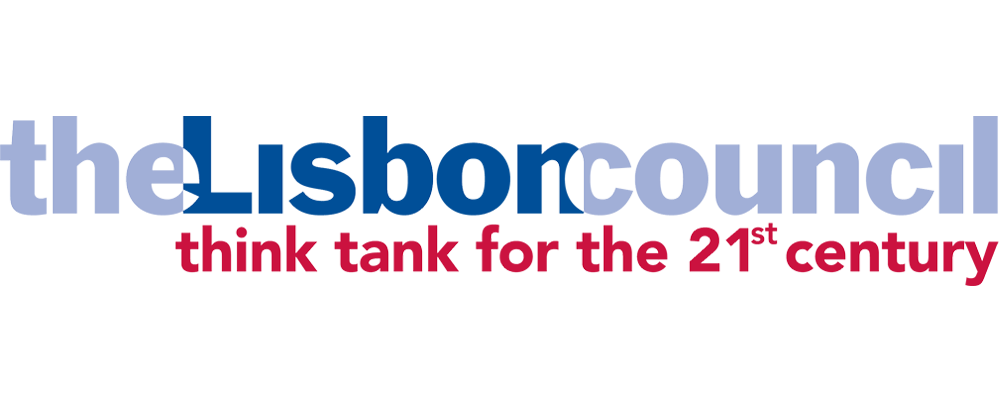
Francesco Mureddu
Senior Director at The Lisbon Council

The Lisbon Council, in partnership with Politecnico di Milano and Engineering, is at the forefront of conceiving the project idea and spearheading the proposal drafting process. As the project coordinator, The Lisbon Council is entrusted with ensuring quality control and adherence to compliance standards. Moreover, it takes the lead in sculpting the use case scenarios and establishing baselines across the social, environmental, and technical facets of the regeneration areas. This involves tailoring the Nature-Based Solutions (NBS) framework to suit specific city-level institutional and technical requirements, as well as crafting the URBREATH global roadmap. This roadmap is envisioned as a comprehensive visual guide for urban transformation, featuring key milestones to track progress. It aims to provide actionable policy and implementation guidelines for broadening the application and methodology of URBREATH. By offering support to other public administrations, it encourages the adoption of more sustainable practices. Additionally, the roadmap will include policy recommendations designed to enhance the uptake and mainstreaming of NBS for sustainability, facilitated through strategic funding and regulatory measures.
URBREATH stands as the cornerstone project within The Lisbon Council's research initiative on smart cities, encompassing both EXPEDITE and SPOTTED. Through the achievements of URBREATH, we anticipate The Lisbon Council will emerge as a pivotal reference at the European level in the smart cities domain, particularly focusing on how urban areas can leverage nature-based and socio-technical strategies to confront and lessen the effects of climate change. Following the project's conclusion, the strategic direction involves leveraging its outcomes to offer consultancy services to local public administrations. This guidance will be aimed at adopting innovative solutions to reduce climate-related health risks and to advance towards achieving climate neutrality.
A crucial component of the project involves the comprehensive integration of various digital tools, designed to augment the effectiveness and visualization of selected Nature-Based Solutions (NBS). This integration encompasses the utilization of digital twins for advanced 2/3D visualization and rendering, facilitating a more tangible representation of NBS implementations. Additionally, the project employs sophisticated climate modelling techniques, including downscaling at the demo site level, to accurately predict and adjust for local environmental conditions. Moreover, impact simulation modelling plays a pivotal role, offering ex-ante, ongoing, and ex-post evaluations of the NBS scenarios' effectiveness across multiple domains. These domains include climate change mitigation, socio-economic benefits, and overall well-being improvements. Such a multi-faceted approach ensures a comprehensive assessment of the NBS interventions, enabling data-driven decision-making to optimize their design and implementation for maximum impact.
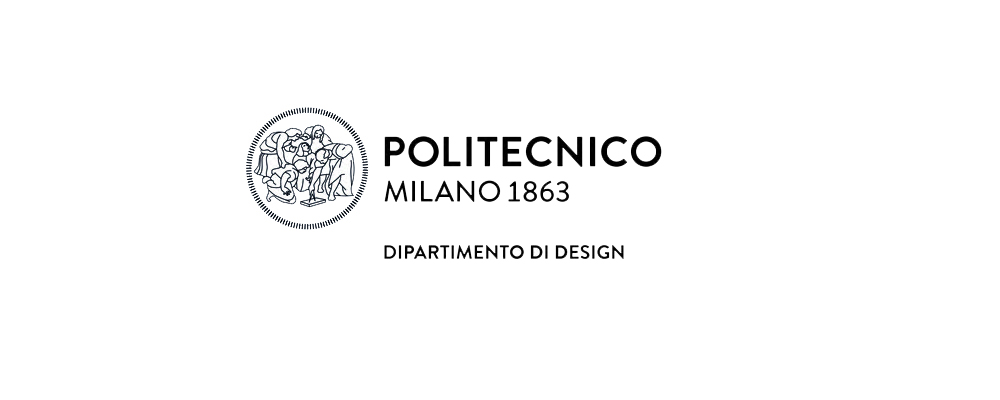
Polimi Team

The role of POLIMI in this project is important as we are leading the WP2, which will set the basis on which the work of URBREATH platform and activities will be implemented. The role of POLIMI is to understand which are the requirements for the digital platform, and which is the general framework on which FRCs and FLCs will implement project on NBSs.
As the POLIMI Department of Design is involved, we are willing to acquire information on different perspectives. First of all, the relationships between digital twin and online platform with the urban practices is crucial and we think that this element presents some questions and challenges that have to be taken into account. Second, the design of solutions and alternatives that might solve and facilitate problems and controversies resolution is a core element in this project, especially in dealing with urban practices. Third, the methodology and implementation of new design approaches towards the re-organisation of different stakeholders is another key point for our study.
One main factor that have to be taken into account is that the two sides of URBREATH have to be developed in parallel. This means that theory and technical elements (regulations and digital platforms) will feed urban practices and development of Nature Based Solutions. On the other hand, it is necessary that this relationship is biunivolcal, which means that urban practices might influence the way in which digital and regulatory processes are conveyed. The challenge is to understand which are the institutional setting enabling co-creation and participation both online and offline.

Universidad Politécnica de Madrid Team

Universidad Politécnica de Madrid is part of the URBREATH project through the Centre for Innovation in Technology for Human Development (itdUPM). The itdUPM is an interdisciplinary centre that integrates people from the research field to address the complex challenges of sustainability and co-create practical solutions. itdUPM do this in collaboration with companies, public entities, civil society organisations and other educational institutions. The itdUPM in URBREATH plays the role of facilitator and orchestrator of the Madrid city cluster (Madrid City Council, Dark Matter Labs, Basurama and Traza), connecting the multi-stakeholder ecosystem, systematising knowledge, and evaluating the city's transformation processes. The itdUPM has a long history of collaboration with the Madrid City Council in projects such as the Madrid Deep Demonstration, LIFE-PACT, Clever Cities and the European Missions. In this sense, the UPM offers the city of Madrid all its scientific and technological knowledge, as well as integrating the approaches of just transition and citizen participation.
URBREATH represents for itdUPM a space for multi-level collaboration. At the local level, strengthening the links with the organisations that are part of the Madrid cluster; at the European level, a space for learning and exchange between the 9 cities that are part of the European Mission of Cities, as well as a space to expand the multi-stakeholder ecosystem with 37 aligned organisations seeking to generate changes in the ways we make cities, in how we promote multi-stakeholder collaboration and how the NBS can be the tool to improve the quality of life in our cities.
In addition to the objectives of the URBREATH project, itdUPM together with the Madrid cluster, seek to provide the city of Madrid with a strategy that combines biodiversity, social regeneration, and climate change adaptation in a single approach. We seek to unlock and demonstrate new organizational models for municipal and regional administrations to work with citizens and other urban stakeholders to quantify and communicate social and environmental benefits. Finally, itdUPM promotes the Spanish collaborative platform of Spanish cities in the framework of the European Mission Cities (citiES 2030) and is an active member of the NetZeroCities (NZC) consortium, therefore, we will seek to systematize the knowledge of the URBREATH project as a useful learning element for the Spanish cities of citiES 2030, as well as the NZC cities.

Kajaani University of Applied Sciences Team

We got involved, because we are interested to continuing our ongoind RDI activities related to environmentally sustainable urban operations. In earilier years we have been creating solutions for better water quality management, biodiversity support, nutrient circulation from waste waters/runoff water and long-term carbon binding. We are also interested on citizen science and related new tools. We have very good and agile collaboration with Kajaani city.
We expect to have fresh new ideas on regreening and how to evaluate the impact of different measures taken. We expect to develop further IT tools to support citizen science and situational awareness on issues related to resilience.
We want to estimate the role of increased carbon binding be regreenign activities in urban areas. We, togehter with Kajaani city, want to estimate the synergies between better carbon strorages, water balance and quality issues and soil health.

ATC Team

ATC got involved in the URBREATH project given their role in leading the dissemination activities. Our expertise in software development and dissemination makes us a valuable partner for a project aiming to boost social interactions, inclusion, equitability, and livability in cities through community participation and innovative methodologies such as Nature-Based Solutions, social innovation practices, digital twins, and artificial intelligence tools.
Working on the dissemination of a project focusing on boosting social interactions, inclusion, and sustainability in cities provides ATC with insights into innovative methodologies such as Nature-Based Solutions, social innovation practices, digital twins, and artificial intelligence tools. This involvement can enhance ATC's knowledge base and expertise in these areas. Participating in a project with a focus on community participation and sustainable development allows ATC to contribute to positive social impact and environmental sustainability efforts. This can align with ATC's corporate social responsibility goals and enhance its brand image as a socially responsible company.
URBREATH for ATC represents an opportunity to contribute its expertise in software development and dissemination to advance the project's objectives of boosting social interactions, inclusion, equitability, and liveability in cities. By leading the dissemination activities, ATC can help communicate the project's findings, methodologies, and outcomes to a broader audience, including policymakers, practitioners, and the general public.
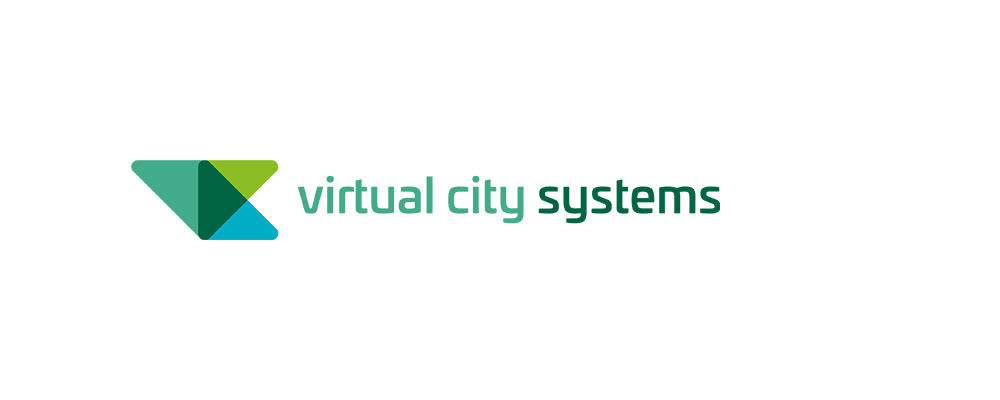
Virtual City System Team

VCS is an expert in building digital (Geo-)Twin applications and we will provide our GIS expertise and our software stack to create Digital Twins of the pilot areas and integrate heterogeneous data from URBREATH participants. One central goal is to connect to different simulations, services, or analytical functions developed by the other partners to leverage the benefits of local digitla twins (LDT). VCS got involved in URBREATH to develop new and innovative solutions based on LDTs which will support cities and regions to better manage climate change challenges. The initial ideas originate from the EU project DUET (https://www.digitalurbantwins.com/) funded under the EU Horizon 2020 research and innovation programme under grant agreement No.870697, in which several of the URBREATH partners already worked together.
VCS expects to learn and understand better which challenges cities and regions face in the context of climate change and which tools, functions and simulations would help them to better cope with these challenges. Ideally, URBREATH will lead to prototypic implementation of tools that will help cities to better plan adaptation and mitigation measures, quantify the impact of different planing scenarios, and ultimatley help them to better cope with climate change. We are also expecting to build a federated IT solutions between partners based on open standards and open interfaces that can be used as a blueprint for future challenges. In the end, as a company, we aim at taking these results to expand our business.
Beyond the focus on CO2 reduction through the implementation of nature based solutions (NBS), we are generally interested to better understand which static and real-time data are relevant for specific tasks in the digital twin context and how to build open digital twins that can be extended on deamnd by users to help them answer their questions. So we will be looking at open standards and interfaces in general? Which are in development, which do work well and are used widley? Which do not perform as it is expected and theory and which will be depricated soon and replaced by new standards. In the end we believe that digital twin solutions should be build on the foundation of standards and trustworthy dataspaces (GAIA-X) to ensure connectivity, openess, reusability, and security.

Urbasofia Team

URBASOFIA is very active in projects and actions related to sustainable land use and nature-based solutions, the twin transition and actions supporting the 2030 Agenda, the Green Deal and the Net Zero Land Take 2050 ambition of the European Commission. As a planning practice, we coordinate research and deployment of participatory processes for strategic planning in cities and regions, focusing on creating feasible action plans and innovation pilots which can afterwards be scaled through mainstream funding. We are also actively training Public Administrations on the inclusion of sustainability criteria in public policy, most recently organizing New European Bauhaus PA trainings at regional level in Romania. We are co-coordinating the Pilot demonstration case in Cluj-Napoca, and contributing to the delivery of the systemic transformation methodology and corresponding metrics (WP2), the co-creation and implementation of NBS scenarios in selected urban areas (WP5 and WP6), as well as WP7 and WP8. For us, URBREATH is an opportunity to build on previous cooperation in planning and pilot-testing NBS actions in Cluj-Napoca, and to expand our capacity building and policy recommendation work.
URBREATH is, in a sense, a natural evolution of previous city piloting and spatial planning oriented towards the embedding of nature-based solutions in the urban environment and the maximisation of NBS co-benefits. We are looking forward to cooperate with the partnership to advance both the technical solutions planned in URBREATH (green / digital), as well as to create the evidence base for upscaling and mainstream funding of the pilot results. URBASOFIA has developed a European-recognized methodology for iterative involvement of stakeholders in integrated strategic planning, which we are planning of refining through the project through mutual learning.
Achieving climate neutrality is a multi-pronged approach that leverages both on lowering operational and embodied carbon in the built environment and the subsequent mitigation actions (e.g. grey infrastructure substitution), as well as on adaptation measures. Technical expertise has a major role here, but so does local policy and especially stakeholder awareness and involvement. Given the general reactiveness of upper governance level legislative overhaul - often driven strictly by the need to transpose EU regulations - we are looking forward to explore with the cities, and especially Cluj Napoca, the policy and regulatory avenues that would support pilot implementation. Beyond this, we would also like to focus on assessing behavioural change and perception among the citizens, as we believe that co-involving them both in decision making as well as in monitoring comes with many future benefits that contribute to the achievement of the Climate Law desiderata.

Diadikasia Business Consultants Team

DBC plays a significant role in the URBREATH project, focusing on innovation, intellectual property rights (IPR), and business strategy. Specifically, DBC is responsible for innovation, IPR, and business strategy as the IM (Innovation Manager). Additionally, DBC is involved in ethics and personal data protection, taking the role of EDM (Ethics and Data Manager). With a proven track record in fostering innovation, DBC ensures the advancement of project objectives through novel approaches and solutions. Its proficiency in managing IPR guarantees the protection of project innovations and assets, including patents, trademarks, and copyrights. Additionally, DBC's strategic acumen enables the development and execution of plans to achieve project goals effectively, maximizing impact and viability in the marketplace. Moreover, DBC's involvement in ethics and data protection underscores its commitment to upholding ethical standards and ensuring project integrity. Overall, DBC's expertise across these domains demonstrates its integral role in contributing specialized knowledge and ensuring the success of the URBREATH project.
The URBREATH project represents a pivotal opportunity for our organization to engage at the forefront of urban sustainability and climate resilience. As a participant in this ambitious initiative, we are committed to contributing our expertise in nature-based solutions, digital technologies, and urban planning to achieve the project's goals. For us, URBREATH is not just a project; it's a pathway to realizing a vision of greener, more livable cities that are prepared for the challenges of climate change. URBREATH is a chance to: Innovate: By developing and implementing cutting-edge NBS and digital tools, we aim to push the boundaries of what's possible in urban regeneration and climate adaptation. Collaborate: Working alongside a diverse consortium of partners allows us to share knowledge, learn from others, and create solutions that are more impactful and sustainable. Impact: Through our contributions, we hope to directly improve the quality of life in urban areas, enhancing liveability, functionality, and social cohesion.
Within the URBREATH project, DBC will contribute in advancing the objectives beyond the mandate set by European climate law to achieve EU climate neutrality by 2050. Specifically, focusing on innovation, intellectual property rights (IPR), business strategy, ethics, and personal data protection, DBC aims to address additional facets crucial for sustainable urban development. Through innovative approaches and solutions, DBC seeks to enhance the climate neutrality of European cities and regions, while ensuring the protection of project innovations and assets. Moreover, DBC's strategic planning maximizes project impact and viability, while its commitment to ethics and data protection upholds project integrity. This comprehensive approach extends beyond the requirements of European climate law, aiming to tackle multifaceted challenges and foster a sustainable and resilient urban future.

Latitudo 40 Team

Latitudo 40 is an SME specialising in the use of artificial intelligence and satellite imagery for land monitoring with a particular focus on the sustainability characteristics of cities in relation to the effects that climate change has on their territory. Over time, the company has specialised in the historical evaluation of indicators related to the microclimatic performance of urban areas (e.g. Urban Heat Islands, cooling capacity of green infrastructures, amount of CO2 sequestered by trees in the city, etc.) and in the evaluation of the application of Nature Based Solutions in Ex Ante and Ex Post urban regeneration projects, also with the use of generative artificial intelligence. Furthermore, in the course of the various projects, the company has mastered all the technological components dedicated to the secure and standardised distribution of data and the creation of data spaces (e.g. FIWARE). Latitudo 40 was involved in the project precisely in order to make its technological and design skills available, aiming to provide its contribution in all the analysis and design activities of the solutions and their implementation methods to achieve the success of the initiative.
The project represents a unique opportunity to engage with all types of actors involved in the dynamics of analysis, design, implementation of nature-based and technological solutions dedicated to the adaptation of cities to the effects of climate change. The interaction with the cities will make it possible to further validate the hypotheses made in the definition of the solutions and the Latitudo 40 business model in terms of the fulfilment of the requirements, operating modes and processes in which the products derived from satellite images with artificial intelligence can be inserted, the need for access and depth of the information content, the specific characteristics of the products and of the visualisation modalities, and the definition of the satisfaction parameters. Similarly, the opportunity to engage with other providers of technological solutions to assess possible synergies and to deepen the company's know-how is of enormous value to Latitudo 40.
The project's focus on the reduction of CO2 emissions certainly represents a theme for the evolution of the current simulation solution for urban regeneration projects based on the application of generative artificial intelligence applied to satellite images. Furthermore, with a view to refining the current simulation performance focused mainly on the impact of land cover change on heat resilience, during the course of the project we will try to add new materials to be simulated, basing the addition of these features on urban regeneration projects already carried out over the years by the project partner cities. In this way, we will create a tool that can be a valid solution to allow local governments to apply urban regeneration scenarios that are in line with European climate law.

Bloxhub Team

BLOHUB was invited to take part in the URBREATH project due to the coordinating role BLOXHUB plays in one of the initial six New European Lighthouse Demonstrator projects, Desire – Designing the Irresistible Circular Society. URBREATH was seen as a potential platform to escalate learnings and experiences connected with urban transformation – both learnings acquired within Desire but also beyond, in other of BLOXHUB’s activities. Further, the objective of URBREATH taps into one of the domains, ‘Cities are nature’, that BLOXHUB has defined as an important arena for actions, which legitimizes the relevance and importance of the project. Our primary role in URBEATH is to work with the city of Aarhus in implementing learning and ideas by the pilot city Leuven. Secondly, our role is to contribute with our experience and knowledge within multi-level collaboration, stakeholder engagement, and facilitation of knowledge activities to the WPs.
URBREATH is a pool of potential future collaboration partners, that may extend the reach and action sphere of BLOXHUB through new initiatives and programs. Further, BLOXHUB expects to extract knowledge about innovative ways of interacting and applying digital tools when addressing nature-based solutions in urban planning and development. This is seen as a key requisite for BLOXHUB to maintain its position as an interesting organisation for its members. By providing access to new relevant collaboration partners and new approaches to how nature-based solutions are operational in a city-connected context BLOXHUB contributes to the continued development of the organization and the opportunities it provides its members. Finally, by connecting closely with the city of Aarhus, BLOXHUB expects to establish connections that will last beyond URBREATH and lead to new and further initiatives.
Use the processes and outputs of URBREATH to bring inspiration to our dialogues with our members and to design common activities and initiatives that address the agenda which is defined within URBREATH. However, the actual change in BLOXHUB´s behavior or choices will depend on the actual processes and outputs and therefore, will only become tangible at a later stage.

Exus Team

In the URBREATH project, EXUS is instrumental in leveraging AI and big data to advance urban sustainability and resilience. By developing solutions for big data analysis and implementing advanced machine learning for accurate pattern identification, EXUS enhances the project's data processing capabilities. It also innovates in data fusion and reasoning to forecast urban trends and ensures seamless data integration across the project through effective scheduling protocols. Moreover, EXUS employs trusted AI for transparent and adaptive data analysis, directly supporting the project's objectives of improving climate neutrality and smart urban management. Through its comprehensive involvement, EXUS substantially contributes to the URBREATH project's goal of employing technological innovation to address urban climate challenges, improve sustainability, and overcome barriers to implementation, marking a significant step forward in the realization of climate-neutral and smart cities.
By engaging in the URBREATH project, EXUS embarks on the opportunity to explore new methodologies, refine its algorithms, and ultimately enhance its suite of solutions. Such an endeavor not only solidifies its standing in the AI tech domain but also sets a new benchmark for what can be achieved in the realm of smart city solutions. Additionally, the project brings together a diverse group of stakeholders, including academic institutions, industry experts, and public entities, all united by a common goal of fostering sustainable urban environments. For EXUS, this presents a golden opportunity to engage in knowledge exchange, gain fresh perspectives, and collaborate on groundbreaking solutions. Finally, participation in URBREATH also aligns with EXUS's commitment to contributing to societal goals, particularly in mitigating climate change and enhancing urban livability. By applying its technological prowess to real-world challenges, EXUS plays a pivotal role in driving forward initiatives that aim to make cities more climate-neutral and sustainable.
The URBREATH project, while aligning with the overarching goal of the European climate law to make the EU climate neutral by 2050, delves into more specific and technologically innovative approaches to assess and implement strategies towards this objective. Unlike the broad directive focused primarily on emission reduction, EXUS, through the URBREATH project, contributes to exploring new methodologies for data analysis, refining algorithms for better prediction and planning, and ultimately enhancing solutions for smart city applications. This involves a deep dive into high-speed big data semantic clustering, mining, advanced statistical machine learning for pattern identification, high-level data fusion, and reasoning to forecast urban trends and future states with improved accuracy. By focusing on specific, actionable solutions within the urban context, the URBREATH project complements the broader goals of the European climate law and provides a detailed framework incorporating cutting-edge technology and data-driven insights to tackle climate change more efficiently at the urban level. This approach not only supports the EU's climate neutrality goal by 2050 but also enhances the quality of life in urban environments through smarter, more sustainable city planning and management practices.

Open and Agile Smart Cities Team

OASC is a global network of cities and communities that assists local administrations of all sizes in their digital transformation. We work with our members, partners and independent experts to create sustainable impact for our communities via their digital tools and systems. OASC's main role is to support and ensure that URBREATH results will be scaled up ina financial sustainable manner and that knowledge will be transferred to cities beyond the project, not only in Europe but also on a global level. OASC is responsible for the PW7 task 7.6, which is the standardisation and data spaces activity. This task will ensure that URBREATH is aligned with the proposed standards and technologies recommended by the DS4SSCC for European data spaces. Additionally, the task will ensure that URBREATH's technical deliverables contribute to and are aligned with the Living-in.eu focus on technologies such as the Local Digital Twins (LDL) - based on the Minimal Interoperable Mechanisms (MIMs plus) specifications- and providing operational guidance for implementation for digital transformation and interoperability. As the OASC MIMs and interoperability are cornerstones of OASC, we were very keen on participating in this project.
URBREATH is a large and remarkable project to ensure widely the systematic integration of transformative technical and nature-based solutions to support carbon neutrality and climate change challengies for cities and communities. OASC will gain practical knowledge for the usability of MIMs plus activities especially through the city pilots. URBREATH is an important project to market the standartisation and harmonisation importance not only in general level, but for the two other projects that are part of this EU NBS cluster.
Most OASC cities have their own carbon neutrality targets between 2030-2050. OASC is actively participating in many EU projects to support these activities by using digital solutions and city tools for city planning, mobility, citizens engaging, etc. URBREATH is complementary with the climate mitigation and resilience solutions. Four different pilots with follower cities covering various climate areas of Europe, with natural based solutions, give a good opportunity to make practical intervetions and investements in real environment using harmonised and scalalable solutions.

Climate Research Foundation Team

FIClima is supplying detailed and tailored climate, seasonal, and weather forecast data for every pilot site. In a strategic way, for long-term decisions, the participation process prior to the definition of the NBS must be evaluated with climate information, taking into account the vulnerability of each city to climate change and evaluating the best solutions. Once the participation process finds the best measures, a second iteration with climate data and applied indices will validate the NBS in the digital twin environment. As climate change is currently taking place, it is necessary to monitor identified long-term risks and vulnerabilities in the short term, for which FIClima provides weather and seasonal forecasts through co-designed weather variables and specific indices in order to prevent cities from suffering the consequences of extreme weather events. Such a huge and ambitious project as Urbreath needed quality and tailored climate and weather information for the project cities NBS development. This kind of information is usually not actually tailored and is provided with not enough resolution or a lack of uncertainty assessment and Ficlima is an expert in this field, avoiding these issues. Contributing to a long-term preservation of the URBREATH improvements is the main goal of FIClima.
Urbreath is an opportunity to implement succesfully NBS in several cities across Eiurope. Besides, fighting against climate change in this way, using best NBS thorugh a methodology which combines co-design processes with high level technologies development like digital twins is a promising stronghold that let the project has encouraging replication opportunities in other cities around the world. Participating in this strong consortium is, for ficlima, an opportunity to have a profitable exchange of experiences with other organizations that share with us the climate change adaptation objective. Aditionally, we are really excited to implement as a first time our data to feed a digital twins system.
Contributing to climate change mitigation is crucial. These last few years, we are experiencing accelerated global warming, and now working to reach neutrality as soon as possible is even a duty with regards to our future. The Urbreath project is aimed at contributing to CO2 neutrality; in fact, it is one of its main objectives, but this project is intended to go further. NBS have been defined in a synergistic way, being able to actively contribute to CO2 sequestration while effectively adapting the city against the extreme weather events that climate change is causing to become more frequent. Urbreath's methodologies aim for these kinds of synergies and, of course, for the NBSs themselves to be optimized, tailored to the peculiarities of each location, and to remain effective in the long term, taking into account the state of the art of future climate projections.

Traza Team

TRAZA is an employee-owned company with extensive experience in social and environmental research and public policy consulting. TRAZA’s role in the Urbreath project focuses on planning and implementing the co-creation process to define the vision and strategic project in the Madrid city pilot. To this end, under the leadership of the City Council, TRAZA will bring to the Madrid cluster its expertise in social research and multi-stakeholder participation processes. The interests of different stakeholders will be discussed and the public purpose will be defined, with input from local government officials and technicians, the scientific community, citizens' organisations and neighbours.
TRAZA considers the Urbreath project to be an opportunity to leverage public learning and leadership to address challenges such as social fragmentation, urban inequalities and weakening institutions dealing with climate change. In particular, TRAZA expects the Urbreath project to generate shared learning about the way we imagine, practise, and evaluate public action regarding climate adaptation and urban regeneration.
The Urbreath project could delve deeper into perceptions of "Nature-Based Solutions" as defined technical solutions to socially undefined problems. The climate challenge represents a broad consensus among scientists and most European public administrations. However, it remains a distant problem for many citizens, even though the changes are of such magnitude that they require the involvement of a wide range of actors in a multitude of everyday actions and activities. An essential Urbreath contribution could come from applied social research in urban regeneration projects that help to understand social positions in real urban adaptation interventions.

Basurama Team

Basurama has wide experience in designing participatory processes for co-designing public spaces and specially to mediate in the translation of citizens' desires and ideas into a formal design that can actually be developed and built. We will be in charge of supporting the Living Labs and to Interpret results obtained for the generation of a project. NBeing responsible for the coordination and drafting of the preliminary project(s) and implementation project(s) that will be developed by Villaverde District. Basurama has special knowledge and a lot of experience in designing reusing material and in moving towards a more circular management of resources.
URBREATH is a step forward to build a multidisciplinary team that works together with the municipality and district responsables and co-create participatory methods and methodologies to design urban policies to tackle climate change and adaptation. We are aiming to learn from others, to share knowledge and to support a better design of the city adapted to citizens needs but also align with European and global challenges such as climate change, biodiversity and equality.
Maybe it is a bit early to answer this question as projects in Madrid have not been identified and indicators will be built in relation to real and concrete scenarios. But in an overall point of view we will be willing to develop a strategy tackling climate change, social impact and biodiversity,making prototypes at neighborhood level to scale them to the district and other districts.

Dark Matter Labs Team

Dark Matter Labs (Dm) is an interdisciplinary team working on what is needed to manifest transformations to our food, housing, land, material and nature systems towards a future of mutual thriving. In doing this, we analyze the shifts it requires in the underlying ‘dark matter’ - monetary, economic, governance, regulatory and policy systems - to make this possible, and we work with partners to demonstrate these alternatives in neighborhoods, cities and bioregions. In Urbreath we will be supporting the city of Madrid and the district of Villaverde in overcoming administrative, procurement, regulatory, data and digital barriers to ensure the project contributes to creating a more resilient, prosperous and vital district.
Urbreath provides a great opportunity to continue working on the urban regeneration of areas that are particularly vulnerable to the effects of the climate crisis using Nature based Solutions and an approach that combines climate adaptation, socio-cultural and economic objectives through institutional, financial, technological and socio-cultural innovation. The Dm team aims to help the city of Madrid harness the full potential of the data and digital offerings that are provided by the consortium in a way that supports better decision-making in response to concrete local needs, capacity and aspirations. We look forward to learning together with partners - connecting city needs, evolving technological capacities and participatory processes that empower local communities.
Dm will work with the city of Madrid and local partners to lead the co-design of a participatory evaluation approach for regeneration. The aim is to ensure the project translates into meaningful and impactful change locally which responds to the needs and vision of local communities, and that can be scaled, adapted and learned from at the city scale. The Dm team intends to address some common challenges with data and indicators to support intuitive and actionable evaluation for meaningful change.

City of Tallinn Team

Tallinn city is the pilot city in URBREATH project, the role of which is to test and deminstrate the use of NBS's. Tallinn 2035 development strategy describes the future central seaside area in Tallinn as open and unobstructed and with a possibility to be accessed via many streets and paths, with natural beaches and parks and natural areas of minimal human interference: with a promenade connecting the beaches and subdistricts in an uninterrupted and cohesive way, creating a green corridor also for non-human residents. The proposed demo area is situated in the district that is facing gentrification. Local residents had been managing the wellfare of the demo area beach for years by adding infrastructure and organising waste removal. They resisted against the real-estate companies' plans to turn the public beach into gated community and as a result, part of the public beach in Kalaranna remained but it was completely re-designed. The proposed action includes a co-creation of a public Linnahalli beach, only 10 minutes' walk away from the former community run beach. Even though the demo areas current condition is derelict, due to its central location and attractive views to the sea from the top of the closed and dilapidating Tallinn City Hall, it is still a popular leisure area despite being unsafe and unkept. The activities in the Tallinn demo area complement spacial interventions of the Rohejälg project, helping to create a more coherent space. In the same area Tallinn city collects and dumps the snow from its streets. There are huge snow mountains in the area that, in each spring, start melting and polluting the soil as well as the costal area in general. Tallinn city aims to test Nature Base Solutions to reduce pollution from snowmelt stored in the area (e.g. snowmelt collection ditches; bio-filtration system to bind bio-salts; water quality sensor-monitoring system; treatment pond with salt-tolerant plants; filtered water outflow).
URBREATH is a possibility to share experiences on NBS implementation while monitoring their effectiveness and contextualizing in the context of the climate change mitigation framework. Tallinn city expects to create a well functioning solution that could be an example for using NBS in other such areas in Tallinn. We also hope to activate the derelict pilot area and continue already started activities.
Tallinn city has agreed upon a climate strategy "Climate-neutral Tallinn. Tallinn Sustainable Energy and Climate Action Plan 2030" (accessible here https://www.tallinn.ee/et/media/309750). "Climate-neutral Tallinn. Tallinn Sustainable Energy and Climate Action Plan 2030" is a cross-sectoral development document that specifies the strategic goal of the development strategy Tallinn 2035 to achieve climate neutrality by 2050 and creates a specific action plan to fulfil the commitment set out in the Covenant of Mayors to reduce greenhouse gas emissions of cities by 40% by the year 2030. We can't guarantee to adequately assess this but with URBREATH we hope to progess in increaseing awareness and administrative capacity related to the effects of climate change. Including city administration employees to international projects will increase the overall

City of Cluj-Napoca Team

Cluj-Napoca city is the pilot city in the URBREATH project, the role of which is to test and demonstrate the use of NBS's. Through the Integrated Urban Development Strategy and other policy frameworks, Cluj-Napoca charts a course towards a more sustainable future, guiding the URBREATH project with clarity and purpose. Through participatory processes such as co-design, consultation, and involvement in decision-making, the city ensures that the project resonates with the needs and aspirations of its inhabitants. Cluj-Napoca assumes a pivotal role in the implementation of nature-based solutions (NBS) and sustainable infrastructure. From the regeneration of the Blue-Green corridor along the Someș River to the development of eco-friendly mobility solutions, the city leverages its expertise and resources to realize tangible improvements in urban livability and environmental quality. The URBREATH project in Cluj-Napoca builds upon previous strategies and plans to achieve several key objectives. Firstly, it aims to reconnect urban residential and industrial areas using Nature-Based Solutions (NBS) and eco-based technologies, fostering a network and corridor effect. Secondly, it establishes a participatory Living Lab to engage local groups, stakeholders, and citizens in scenario building, planning, and monitoring processes, leveraging digital technologies. Thirdly, URBREATH tests NBS to improve local micro-climate and environmental quality, addressing post-Covid19 challenges and enhancing social cohesion, wellbeing, and health.
Participation in the project enables Cluj-Napoca to advance its sustainability goals, reducing carbon emissions and promoting environmentally-friendly practices. By involving local stakeholders in the project, Cluj-Napoca fosters community engagement and empowerment, ensuring that the initiatives align with the needs and priorities of its residents. Participation in the project facilitates the exchange of knowledge and best practices with other cities and project partners, enhancing Cluj-Napoca's capacity for sustainable urban development. Also, Cluj-Napoca can anticipate the revitalization of key urban areas, enhancing the overall livability and attractiveness of the city. Overall, participation in the URBREATH project aligns with Cluj-Napoca's vision for sustainable growth and provides opportunities for enhancing the city's environmental, social, and economic well-being.
Cluj-Napoca has been selected as one of the 100 Mission cities. As such, it is committing to accelerate efforts to achieve climate neutrality and serve as an example for other urban areas to follow. Already in the Integrated Urban Development Strategy 2021-2030-2050, adopted in early 2022, Cluj-Napoca has committed to becoming a Net Zero City by 2030 and has already set up several ambitious areas of intervention, milestones, and timeline. Moreover, following the Covid-19 crisis, the City of Cluj-Napoca has also prepared a Resilience Plan, which tackles issues ranging from demographic decline and aging, to sound urban planning, urban food logistics, health issues, climate change, economic competitiveness, and social inclusion. Other relevant strategic documents include the 2022-2030 Sustainable Energy and Climate Action Plan (SECAP) (currently available for public consultation), the Sustainable Urban Mobility Plan 2021-2030, the Energy Efficiency Improvement Program (updated each year), and the 2020-2024 Air Quality Improvement Plan. Also Cluj-Napoca 2030 Climate Neutrality Action Plan is part of our CCC -Climate City Contract and it is a validated document by the European Commission, being awarded with the EU Label - smart & climate-neutral cities. The document is a green transition strategy that states our envisioned path towards decarbonization, which is informed by our obligation as a holder of the Mission Label to generate systemic innovations and transformative actions in all emission domains, capitalizing on all our available systems. To accomplish this objective, we seek the support of both entities and citizens, whom we intend to keep engaged throughout the implementation of the Action Plan via our Cluj-Napoca 2030 Net Zero Coalition.
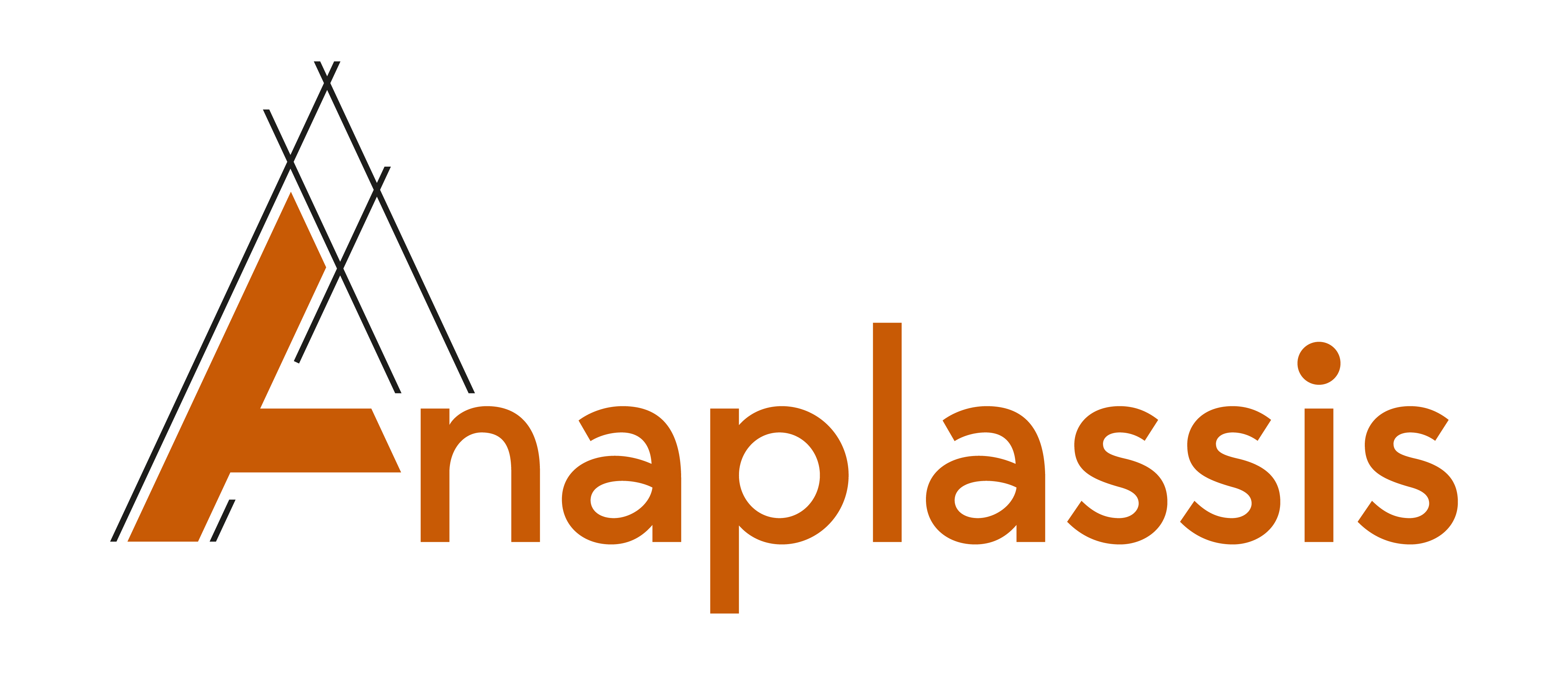
City of Athens Team

ANAPLASSIS S.A. is a state-owned entity working closely with the municipality of Athens and other public authorities in order to implement sustainable urban interventions in the city of Athens. Since our projects aim for the regeneration and upgrade of public space and urban lanscape, URBREATH is an opportunity to learn from other cities and gain valuable insights into NBS, already applied and tested in other European cities, and innovative digital tools. Right now, ANAPLASSIS S.A. is involved in the early stages of an unprecedented large-scale public/private investment program that is about to start in Athens; the 'Double Regeneration Project' is the largest urban development and social intervention project ever undertaken by Greece's local authorities, costing a total of €230,000,000 and occupying an area of 95,000 meters².
For us, URBREATH is a unique opportunity to learn from the other cities and experts participating in the project and gain valuable experience in participatory and co-designing processes. As Anaplassis S.A. works closely with other municipalities and authorities involved in urban design and planning, the knowledge and experience gained can be "spilled-over", so that the greater Athens metropolitan area can benefit. Citizens' and stakeholders' engangement and acceptance is vital in order to tackle the effects of climate change, so URBREATH can help us develop methodologies and strategies for engaging local communities and other stakeholders in both the decicion-making process and the implementation of projects. Recognising the needs and aspirations of citizens helps promote social acceptance and behavioural changes vital for achieving sustainable outcomes.
For us, URBREATH is a unique opportunity to learn from the other cities and experts participating in the project and gain valuable experience in participatory and co-designing processes. As Anaplassis S.A. works closely with other municipalities and authorities involved in urban design and planning, the knowledge and experience gained can be "spilled-over", so that the greater Athens metropolitan area can benefit. Citizens' and stakeholders' engangement and acceptance is vital in order to tackle the effects of climate change, so URBREATH can help us develop methodologies and strategies for engaging local communities and other stakeholders in both the decicion-making process and the implementation of projects. Recognising the needs and aspirations of citizens helps promote social acceptance and behavioural changes vital for achieving sustainable outcomes.
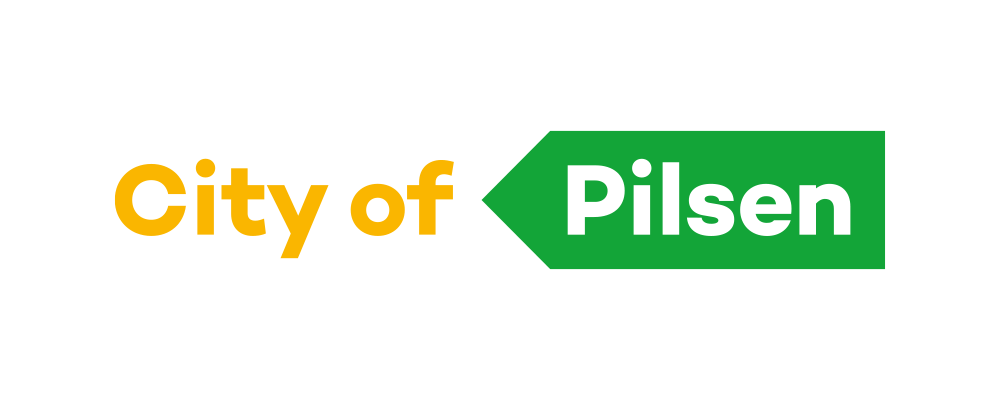
City of Pilsen Team

SITMP is the Information Technology Administration of the City of Pilsen. It helps to make the lives of Pilsen citizens easier, to develop talents and to inspire business. SITMP, as a part of the City of Pilsen, is administered and funded by the City. It is a public company with an annual turnover of 11,5 mil EUR and 140 employees. With the help of modern technology, SITMP creates a city where people can live well and where the real needs of municipal organisations and the citizens can be easily met with a set of smart and modern solutions. It supports the establishment of technology-oriented companies and attracts the existing ones to move to Pilsen by improving the business environment. It supports the employment of local talents and develops the business potential for the future of the city. The city of Pilsen has therefore joined the global Smart Cities concept, of which it is a leader in the Czech Republic. City of Pilsen is a signatory of Living-In.eu, a member of the LDT EDIC being established (networked local digital twins) by the EC and member states, and a partner in the DUET (digital twin) and Climaborough (climate neutral cities) EU projects.
The tested solutions will be implemented in other parts of the city and shared with other cities as good practice examples to follow. The city will release all the necessary data and provide the necessary synergies to transfer the lessons learned to other cities/region. Digital twin enhancelement, 3D modelling.
It is a great opportunity for us to draw inspiration from European leaders and test their solutions, based on the wisdom of nature and modern technologies, in the Pilsen environment. We have an accurate 3D model of the city, the so-called digital twin, which we can use for urban planning, assessing the quality and benefit of green spaces, and simulation models for revitalizing the city with respect to climate neutrality.
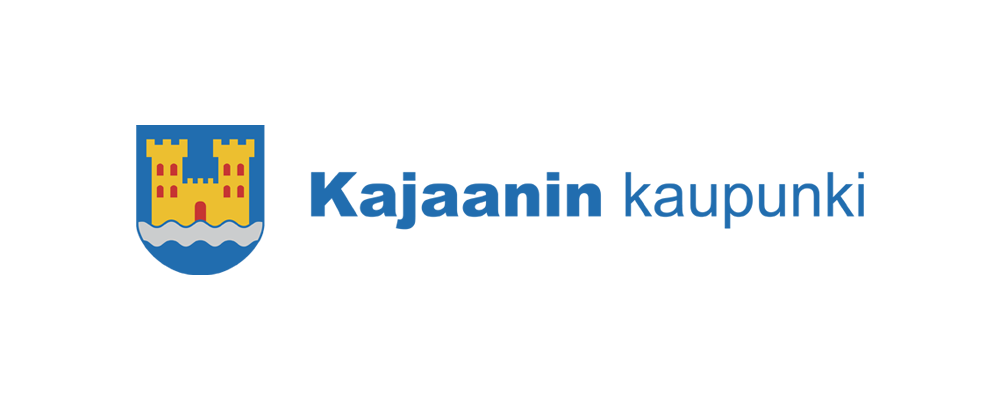
City of Kajaani Team

Kajaani city is in URBREATH project context follower for Tallinn city. We are located in Nothern Finland, between boreal and sub-arctic climate zones. We are participating on co-creation for more resilient, breathing and sustainable city. Combining ecological, URBREATH-related elements into our city infra planning initiatives is highlt interesting for us. We, as sub-arctic region, are experiencing the climate change impacts as increased heavy rainfall, flooding, storms and occasionally also as drought.
We expect to develop together with other participants fresh ideas on how to develop our city even more resilient, eco-friendly and floodproof in future. We want to develop carbon binding, recreational values and biodiversity support together in our town area and expect to gain new expertise and support for this work
We want to develop carbon binding, recreational values and biodiversity in our town area. These 3 aspect create stronger grounds for resilience and breathing Nordic city.
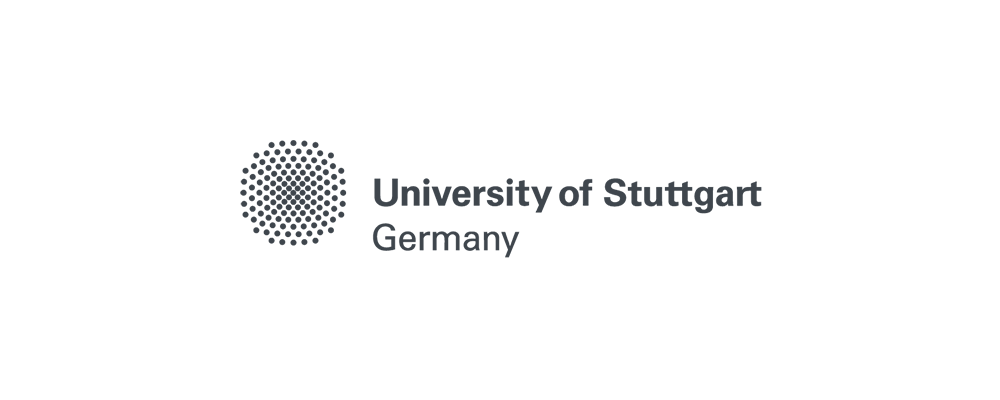
University of Stuttgart Team

In Task 2.2, we work closely with local stakeholders to design transformative pathways for planning and implementation of NBS. Our aim is to develop a logical structure that links decisions and plans to expected outcomes and impacts. This will enable us to support cities in strategic conversations and decisions and provide them with useful tools. This work is being done in close collaboration with NetZeroCities to create a strong link between URBREATH and the Mission platform. In Task 5.6, we focus on assessing the impact of these implemented NBS. To this end, we are creating a common simulation and assessment basis and monitoring protocols based on the expected impacts identified through the activities of the FRC and FLC. Our aim is to evaluate the effectiveness of the URBREATH solutions and develop long-term monitoring protocols for the pilot cities. We will work closely with our partners to develop an evaluation framework based on their expertise in different areas such as NBS, policy design, modelling and visualisation, stakeholder engagement, innovation and governance.
For us, URBREATH is a fantastic opportunity to explore how technical innovations can be integrated into participatory urban planning processes and help different stakeholder groups to make informed decisions in the context of nature-based solutions. In addition, we aim to learn more about the intersectional issues that nature-based solutions can address in the long term and thus better understand the interactions between different challenges.
For us, URBREATH is a pioneering initiative that combines technical innovation with participatory urban planning processes to develop NBS that enable comprehensive and sustainable urban transformation. We see an opportunity to make a significant contribution to urban resilience and climate change mitigation, while improving the quality of life and inclusivity of urban areas. It is important to take a holistic approach to climate change as it has far-reaching impacts on all aspects of human life. By focusing not only on environmental, but also on social, economic and cultural aspects, we can ensure that our actions are effective and equitable. Through our involvement in the project, we want to create participatory innovations and develop a framework to capture and communicate the real added value of co-creative NBS, which will help us to better understand and quantify their effectiveness and benefits for cities and regions.

Municipia Team

MUNICIPIA has the role of contributing on the techncial WPs n.3 and n.4 most especially for the techcnical development of the project tools and sharing our comptences related to urban monitoring and planning with public administration. Additionally MUNICIPIA contributes to WP n.5 most especcialy leading a T5.5 Tools for monitoring, co-creating, deciding and steering
MUNICIPIA expect to learn new tools and methods to deal with urban planning in genral enriching the type of services it can be delivered to our clients which are most especially mid size or small municipalities.
MUNICIPIA will try to assess mostly how digital tools can be beneficial to municipalities and how these can support planning activitiea and policies development

South Pole Team

As a world-leading carbon project expert and climate consultancy, at South Pole we have a simple mission: to accelerate the transition to a climate-smart society. Since urban centres are a key element of such a transition and are in dire need of climate action and finance, our motivation is fully aligned with the EU missions on cities and adaptation. For over a decade, we have supported cities, regions, and countries in their transition toward a climate-resilient and low-carbon economy, providing project preparation, building the capacity of local public sector stakeholders, and supporting them with mobilising climate finance. Joining forces with the URBREATH consortium was the natural continuation of our work to spearhead climate action in European cities. South Pole will bring its experience with NbS and sustainable infrastructure projects, together with our climate finance expertise, to plan and finance re-naturing solutions, ensuring their scalability and long-term financial sustainability. We will lead the development of tailored Urban Greening Investment Plans to help cities assess, plan, and mobilise investments for their urban greening actions. Additionally, we will lead the development and promotion of collaborative procurement models and innovative financing solutions to implement financially sustainable greening projects.
URBREATH represents an opportunity to work closely with cities and like-minded partners to deliver climate action and impact. The combination of expertise brought by the different partners is truly unique: leveraging digital and AI technologies together with community participation and direct city collaboration has the potential to develop and integrate transformative technical and nature-based solutions. By participating in this project, we expect to build and strengthen partnerships and fully develop specific pilot projects that can have a concrete impact and serve as best practice to scale climate action.
Properly designed and implemented NbS can be a cost-effective approach to reducing local and global emissions, while also helping to build resilience to the effects of climate change and improving human wellbeing. One barrier hindering the widespread adoption of NbS, particularly in urban contexts, is the lack of funding and available financing. In 2018, in collaboration with CKIC, we established the City Finance Lab, the first platform in Europe aimed at supporting the development of innovative financial solutions to increase investment in resilient, low-carbon, and sustainable urban projects. Building on our previous work, addressing financing barriers is a key focus area for us as part of the URBREATH project. We aim to develop, test, and showcase how innovative financing solutions can be crucial to scaling NbS at the urban level.

Climate Alliance Team

Climate Alliance is the largest European city network dedicated to climate action. Our members, ranging from small rural towns to cities with populations in the millions, accept climate change as a global challenge that requires local solutions. With this Climate Alliance brings a huge potential to spread the learning of the pilots within the URBREATH project. As Climate Alliance we have dealt intimately with cities needs and challenges for over 25 years and supported them in making their cities more adaptive to climate change. With this experience we always try as much as we can to guarantee that these are taking into account.
URBREATH to CA, is about developing a participatory approach to see how digital solutions
can serve cities resiliency challenges. A digital twin is much more than a conventional
model that simulates reality as it needs to be connected to an actual physical object, for
example a green roof or a wetland in the city. These Digital Twins should improve our
knowledge of how the nature based solutions are actually contributing to the challenges
that they are built to solve, think of heavy precipitation, heat or increased water flow.
While at the same time, allowing us to communicate our plans better to people and integrate
their feedback and suggestions more easily. As CA, being part of such a highly innovative consurtium, we expect to learn in practice how these Digital Twins will make resiliency work in cities, more effective and inclusive.

City of Madrid Team

As Madrid City Council, our role in the URBREATH project is multifaceted. We act as the lead and main coordinator of the project at the local level, working in close collaboration with all stakeholders, including the Universidad politécnica de Madrid, Traza, Basurama and Dark Matter Labs. Our main role lies in defining the strategic vision and implementation of specific policies and actions of the Madrid City Council on climate change. In this sense, we bring together different general directorates of the city council for a cross-cutting and coordinated work. We participate in URBREATH because we recognise the critical importance of addressing the environmental and social challenges facing our city. Madrid faces significant problems related to climate change and air pollution, socio-economic inequality or lack of green spaces. By joining this collaborative project, we seek to leverage the expertise and resources of our partners to develop innovative and sustainable solutions that improve the quality of life of our citizens and promote more equitable and resilient urban development.
URBREATH is an opportunity for the Madrid City Council to address environmental and social challenges in a comprehensive and collaborative way. For us, URBREATH represents an innovative and participatory approach to better promote urban sustainability in our city through an approach of adapting to climate change and implementing nature-based solutions. We expect to gain a number of benefits from participating in this project, including:
- Access to expertise and technical resources provided by our partners.
- Development of effective strategies and policies to address environmental problems.
- Strengthening our institutional and technical capacities in areas such as urban planning, data management and citizen participation.
- Promoting collaboration between different stakeholders, including citizens, civil society organisations and the private sector, to drive innovation and positive change.
- Improving the quality of life and well-being of our citizens through the creation of healthier, more liveable and sustainable urban environments.
Madrid is one of the 112 cities part of the EU Mission for climate neutral and smart cities, and one of the firts cities with the Mission label. Throughout URBREATH, We seek to assess and develop strategies to promote social justice, biodiversity and nature-based solutions in our city. We recognise that combating climate change is not only about reducing greenhouse gas emissions, but also about addressing social inequalities and promoting equitable and sustainable urban development. Therefore, within the URBREATH project, we will strive to:
- Develop policies and actions that promote social and economic inclusion, especially for disadvantaged and vulnerable communities.
- Integrate biodiversity into urban planning and public space management to promote urban health.
- Encourage nature-based solutions practices.
- Assess the social and environmental impact of our actions to ensure they are aligned with the principles of sustainability and equity.
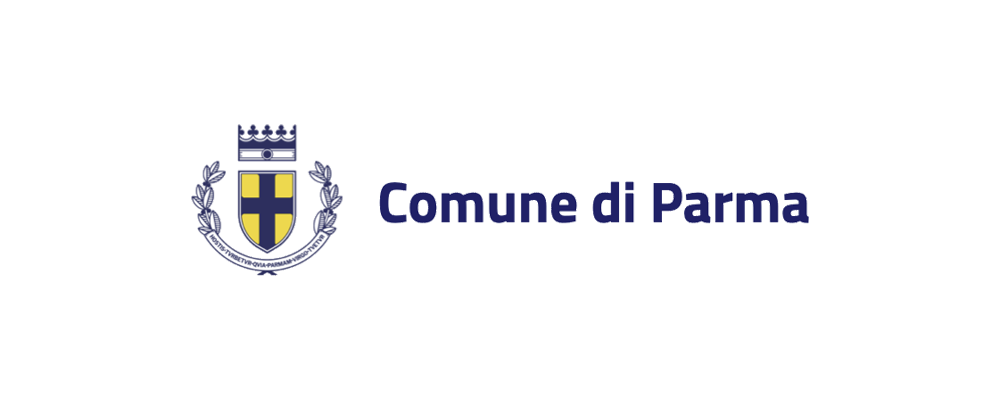
Cristina Pellegrini
EU project manager

Parma is a follower city. Together with Athens, Parma is a follower of Madrid, pilot city for the mediterranean climate zone. With URBREATH, the City of Parma aims to refine its climate adaptation strategy, currently defined in the SECAP approved in June 2021, and will contribute to reach the goals of the Climate City Contract approved by the EC in the context of the 100 Cities Mission. In particular with the participation in URBREATH project Parma wants to increase the knowledge and test new tools and methodologies to include green and nature based solutions (NBS) in a strategic way in urban regeneration projects. Parma will in particular apply the new acquired knowledge to the redevelopment of San Leonardo District.
Parma is particularly interested into the following URBREATH goals: social innovation aimed at the increased liveability of urban spaces; define intervention models for urban regeneration/built environment and green areas; definition of a set of (simple, easily measurables, easily collectibles) indicators on adaptation using ICT. The solutions will be adapted to the San Leonardo area to be then replicated in the rest of the city.
Parma is one of the 112 cities part of the EU Mission for climate neutral and smart cities. The city sunmitted the climate city contract in September 2023 and was awarded with the climate label in March 2024. With the ccc, Parma committed in reaching the climate neutrality by 2030. Thanks to URBREATH, Parma aims to accelerate the integration of adaptation measure into climate transition processes. Forestation and the use of urban green as an infrastructure in the early stage of each planning process is one of the city strategies for the resilience to climate change. Also the use of ICT in the management of green areas, including the realisation of a digital twin of trees, will be further accelerated with URBREATH.

ENG Team

Engineering (ENG) collaborated closely with The Lisbon Council and Politecnico di Milano to conceive the project concept and guide the proposal drafting process.
As the project technical manager, ENG supervises the technical activities outlined in the URBREATH work plan, supporting the project coordinator. In particular, ENG leads the definition of the technical requirements and overall architecture of the URBREATH toolkit; it is responsible for the data management and monitoring tools and, as leader of WP4, for the delivery of the overall URBREATH decision-making framework.
ENG was involved in the project for its proven design and technical skills in supporting the digital transformation of cities and public administrations. It represents a valuable partner for a project aiming to improve the climate neutrality of European cities through advanced digital technologies, particularly Local Digital Twins and data-driven decision-support tools. Its expertise can leverage a relevant network at the EU level; ENG is leading the BDVA Task Force on Smart Governance and Smart Cities and co-leading the FIWARE Foundation Smart City Mission Support Committee, and it is one of the Living-in.eu movement supporters.
URBREATH offers a valuable opportunity for collaboration with various stakeholders (particularly cities) on climate resiliency and environmental sustainability, which represent key topics for ENG both towards its customers and within company processes. This commitment is demonstrated by the numerous initiatives undertaken by ENG in these areas as described in the company's Environmental Social Governance & Corporate Social Responsibility reports (https://www.eng.it/en/who-we-are/esg). By participating in URBREATH, ENG will contribute to developing and providing innovative digital solutions for urban revitalisation and climate neutrality, aiming to take a leading role at an Italian and even European level. In doing so, ENG will leverage and evolve the expertise and assets developed in other relevant projects focusing on NBSs and climate challenges such as UnaLab (https://unalab.eu/en) and Invest4Nature (https://invest4nature.eu/). ENG will exploit the project’s outputs to improve its offering of cutting-edge solutions to support municipalities and cities in facing the challenges related to climate change and in creating more equitable, green and inclusive social ecosystems.
URBREATH goes beyond the EU's climate neutrality goal, focusing on NBS-driven urban revitalization and resilience. The project also aims at improving social interactions, inclusion, equity and liveability in cities, putting communities at the heart of the decision-making process and combining advanced technologies (i.e. Local Digital Twins, IoT and AI) with social innovation to achieve its vision. This holistic approach differentiates the project from the “simple” greenhouse gas emission reduction of the EU's climate law. The involvement of multiple cities (4 Front Runner Cities and 5 Follower Cities) from 4 different European climatic zones will ensure that the solutions developed in URBREATH are adaptable to different urban contexts. During the project execution, ENG will have the opportunity to collect valuable insights concerning (i) the effectiveness of the developed solutions in improving the quality of urban life, being aligned with the actual needs of local communities, and (ii) their level of replicability in different city contexts.

City Of Leuven Team

